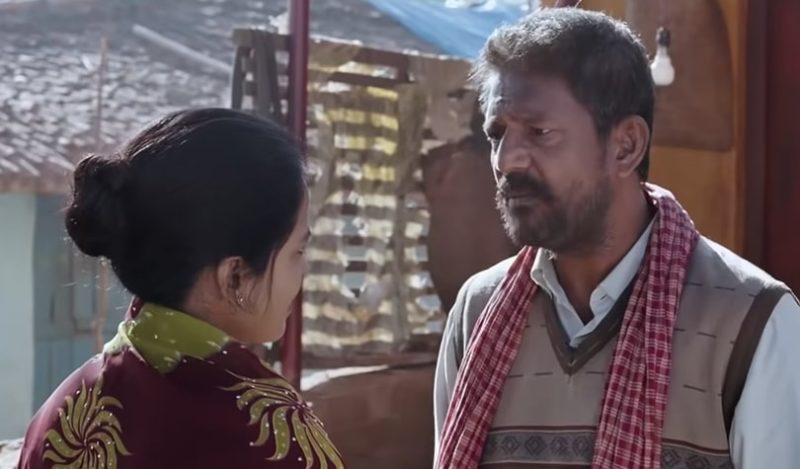Right from the time he made his first feature film ‘Hip Hip Hurray’ (1984), Prakash Jha has made a conscious effort to strike a fine balance between art and commerce. While most of his films (including ‘Dil Kya Kare’; 1994) have dealt with social or political issues plaguing the society, he has treated the subject matter in a way that it does not alienate the audience which comes to a theatre looking for entertainment. In this regard, his most successful experiment has been ‘Raajneeti’ (2010). Like his earlier films, his new film ‘Pareeksha’ is based on a serious subject but with his name attached to the project both as a producer and a director, one expects the film to have the kind of drama that would engage the viewer sufficiently engaged apart from imploring them to introspect about something.
Azaan (a religious prayer) is heard as we are introduced to the environs of small-town Bihar which the film is set in. We then meet Buchi Paswan, a jovial rickshaw-puller who greets the children, he picks up from their homes and drops to their school, in broken English. His wife, who works in a factory which manufactures utensils, is as hard-working as Buchi. Both of them dream of giving the best possible educational facilities to their bright son Bulbul (Shubham Jha). Buchi realises that his son who studies in a sarkaari school, will have good career prospects only if he studies in a reputed English medium school. He resolves to fulfill the seemingly impossible task of getting his son admitted in the same school which he drops children from affluent families in. While he manages to accomplish this goal, a mistake committed by him costs him dearly and puts the future of his son at risk.
The film, based on a real incident which happened in Bihar, a while back has several layers to it and the plot, inherently, gives Prakash Jha the scope to create several dramatic moments in the narrative which keep one hooked and wondering what would happen next. There are certain sequences in the film which have the beats of a thriller (yes, watch the film to know when and how) and that ensures the ones who are not very keen on watching a social film have a good time too. There are several interesting sub-plots in the film which take the narrative in a whole new direction. Jha, who has also written the film, done a good job at ensuring that these important turns in the narrative are incorporated in a smooth manner.
The film is set in Jharkhand. As Prakash Jha belongs to Bihar (which Jharkhand was born out of), he has managed to represent the milieu well. Adil Hussain is not from the state. But, when you see him portraying a rikshawallah from Bihar in this film, you would find it hard to believe that he is not. Apart from getting the diction, dialect and body language right, Hussain delivers a performance that deserves a prolonged applause. Watch out for the scene in which his hands are shaking out of guilt after doing something which he ought not to. Priyanka Bose gets several difficult scenes to show her mettle as an actress and delivers a very sincere performance. Sanjay Suri lends warmth and dignity to his role of an upright police officer. His character adds a lot of weight to the narrative and he does complete justice to it. Shubham Jha is a talent to watch out for. His acting, dialogue delivery and the confidence with which he has performed every scene is remarkable. Kiran Karmakar leaves a mark in a brief role.
While it raises some pertinent issues, Prakash Jha ensures the audience remains consistently engaged throughout its duration.

